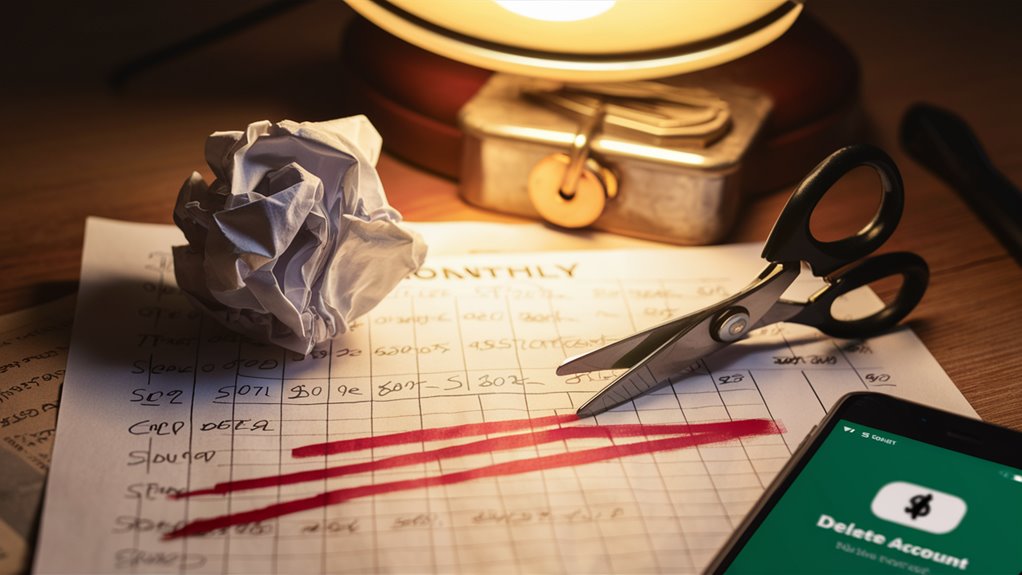Handling Problem Gambling: A Full Guide to Recovery

Quick Steps for Gambling Crisis
Problem gambling can be tough, but fast help is ready at the 24/7 National Problem Gambling Helpline on 1-800-522-4700. Skilled helpers give private support and guide you to key recovery tools.
Money Safety Moves
Keep Your Money Safe
- Stop credit cards and take off payment options
- Stop gambling money moves at your bank
- Give money control to a family member you trust
- Shut down online betting accounts for good
- Set auto payments to keep key bills safe
Setting up Blocks
Sign up for self-exclusion programs at:
- Casinos on land
- Online gambling sites The Impact of COVID-19 on the Gambling Industry
- Sports betting apps
- Mobile game services
Support from Pros
Help Choices
- Certified gambling helpers
- Cognitive behavior help
- Group talk sessions
- Money advice help
Help from Others
- Gamblers Anonymous meets
- Family support groups
- Workshops for recovery
- Peer help plans
Plans for Long-Term Healing
- Build strong coping ways
- Make a solid support web
- Keep money actions clear
- Make life changes
- Watch your recovery path The Best Casino Games to Play With Friends
Break free from the hold of gambling with pro help, steady support, and tested recovery steps. Getting better is real with firm effort and the right help.
Seeing Signs of Problem Gambling
Seeing Signs of Problem Gambling: A Thorough Guide
Main Signs in How You Act
Problem gambling shows in clear ways.
Too much time and money on gambling over what you can afford points to possible addiction.
Chasing losses, where people try to win back lost money with bigger bets, shows a big rise in risky acts.
Money and Social Clues
Money warning signs include:
- Taking money just for gambling
- Secret gambling debts
- Empty savings
- Not paying bills on time
Social and relationship warnings show as:
- Lying about gambling
- Pulling away from family and friends
- Ignoring work or home duties
- Fights over gambling
Mind and Feelings Signs
Mental and feeling signs often come up as:
- Always thinking about gambling
- Feeling nervous when trying to cut down
- Using gambling to forget problems
- Feeling bad about betting
- Not being able to stop gambling
Changes You Can See and Feel
Obvious changes include:
- Bad sleep habits
- Mood changes based on gambling
- Less care for how you look
- Eating more or less
- More stress signs
Effects at Work
Professional warning signs cover:
- Work results getting worse
- Days off with no reason
- Using work stuff for gambling
- Work friends getting upset
- Money issues at work How to Take Advantage of Online Gambling Promotions
Setting Strong Money Limits
Setting Strong Money Limits for Problem Gambling
Starting with Money Controls
Money safety moves are key when signs of gambling show up.
The first main step is to let a trusted family member or friend handle your money.
This person will take care of your accounts and set up a system for how much money you can use. Being open about gambling issues is key for this to work.
Putting in Digital and Real Blocks
Key safety actions include:
- Ending all credit cards
- Getting rid of apps tied to gambling
- Putting in software that stops betting sites
- Setting up auto bill pay
- Keeping just one checking account
- Setting firm limits on daily money use
Making a Full Money Plan
Make a full monthly budget that includes:
- Needed living costs
- Money for savings
- Plans to pay off debts
- Money for emergencies
- Just a little cash each day
Handling Sudden Money
Deal with extra money through:
- Putting it straight into savings
- Keeping it hard to get to
- Having a plan for taking money out
- Putting money into long-term investments
These money limits help you stay safe, heal, and keep your future money stable.
By setting these controls, you can build a strong base for good money habits and getting past addiction.
Looking for Pro Help
Looking for Pro Help for Gambling Woes

Starting with Pro Treatment
Pro gambling addiction help is a big step in getting better.
Trained pros know the deep issues of gambling disorders and give support that works for a long time.
A certified gambling addiction pro can check your situation and make personal plans that work.
Choices and Tools for Help
Licensed help places give many ways to get better:
- One-on-one talking sessions
- Group programs
- Thinking and behavior help (CBT)
- Family support help
- Help in a crisis
- Plans to stop falling back
Meet with skilled pros through the National Problem Gambling Helpline (1-800-522-4700) or get in touch with local addiction help places.
Many places have stay-in or visit programs made for different needs.
Money-Smart Treatment Choices
Insurance and Paying Options
- Many insurance plans cover gambling addiction help
- Payment plans based on how much you make
- Free talks to check your needs
- Plans for paying over time
- Help programs paid for by the state
Help Group Tools
- Gamblers Anonymous meets (in real life and online)
- Free help from peers
- Online recovery places
- Family support groups
- Learning workshops
Get in touch with help places to talk over money options and check if your insurance covers certain programs. Pro help with peer support makes the best base for long healing.
Making Your Help Web
Building a Strong Help Web for Getting Better
Creating Your Main Help Group
Building a good support web is key to make your healing stronger along with pro help. Start by finding family and close friends who get it and stick with your goals.
Being open about your challenges lets them help better, whether it’s giving a shoulder when tough times hit or help with handling money.
Getting to Group Help Resources
Recovery support groups like Gamblers Anonymous link you with others in the same boat. These set-up help spots give safe places to share and learn ways that work.
Also, online recovery spots are there all day to give help when you need it most.
Mending Relationships and Staying Honest
Fixing ties means owning up to past acts while staying focused on what’s ahead. Share your recovery triggers and warning signs with your help group to set up good ways to stay on track.
Asking for help shows strength and a promise to stay better for a long time. Work with your help group to build plans for staying safe and ways to handle crises to keep on a good path in your healing.
Staying Away from Gambling Places
Full Guide to Staying Away from Gambling Spots
Getting What Self-Exclusion Is
Self-exclusion is a sure, strong way for those who want to stay away from gambling addiction.
This choice lets people officially stay away from gambling spots, including real casinos, betting places, and online gambling sites.
How Self-Exclusion Works
The self-exclusion steps usually need:
- A photo ID
- Filling out official papers
- Picking how long to stay away (we suggest at least 6 months)
- OK’ing penalties if you break the rule 온카스터디 인증리스트 확인
Putting It In Action
Plans That Cover Many Spots
Programs that cover many places let you stay away from many gambling spots with one form, helping to stop a slide back into old ways.
Online Spot Exclusion
Go to the safe gambling part of each betting site to start staying away digitally.
National self-exclusion lists often include many online operators at once.
Smart Ways to Put It In Place
- Start with places you go to a lot
- Add more places in a set way
- Get help from people you trust during this
- Keep all papers that say you’re staying away
More Help While Getting Better
Make self-exclusion work better by adding:
- Pro gambling addiction talks
- Going to regular support group meets
- Knowing and handling triggers
- Trying new activities
Rules and What Happens If You Don’t Follow Them
Penalties for not following self-exclusion are key to keep you away, typically including:
- Losing any money won
- Being made to leave the place
- Possible legal issues
- Closing your online accounts
Building Good Ways to Handle Things
Building Good Ways to Handle Things While Getting Better
Understanding and Handling What Sets You Off
Good ways to cope are central to a long healing from addiction.
Knowing what sets off your gambling is key – these might be feelings, times, places, or social spots that make you want to gamble.
Being aware of these patterns helps you respond in a good way.
Key Ways to Handle Stress
Ways to Manage Stress
- Deep breath work
- Step by step muscle ease
- Staying mindful
- Regular body work
Tools to Keep Feelings in Check
Tracking moods through writing helps see into how you feel and the hard spots.
This self-knowing helps pick the right ways to cope when times get hard.
Using Art and Support
Getting into creative things like:
- Art therapy
- Playing music
- Writing as therapy
- Keeping a diary
Building a strong support web with family and friends who get it strengthens how you can face hard times and stay honest.
Staying Well With Your Body
- Regular workouts
- Time outside
- Sports with others
- Yoga and stretches
These activities boost feel-good body chemicals and give you good choices over gambling while cutting down on worry and stress.
Keeping Up Good Long-Term Ways
Building lasting ways to cope needs steady work and fine-tuning.
Work on using many ways to create a full plan for handling stress and keeping feelings in check.
Regular checks and changes keep these ways working well as you heal.




